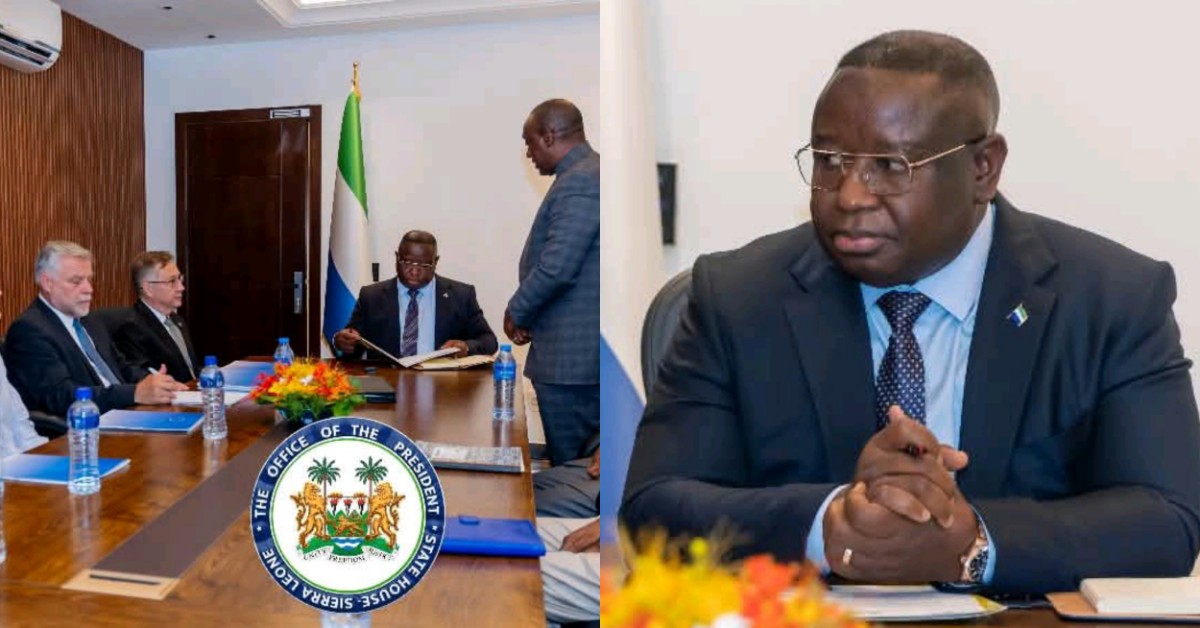President Julius Maada Bio is getting ready to launch a major solar project worth 830 million New Leones (€34 million) that will power thousands of homes and businesses across rural Sierra Leone.
The Salone Off-grid Renewable Energy Acceleration Initiative (SOGREA), supported by the European Union (EU), the United Nations Office for Project Services (UNOPS), and the Government of Sierra Leone, will bring clean and affordable power to 60 communities by 2027.
At least 25,000 households and 2,800 businesses are expected to benefit from this plan, which includes the installation of minigrids with 5.2 megawatts of solar energy capacity. Many of these areas will be getting electricity for the first time.
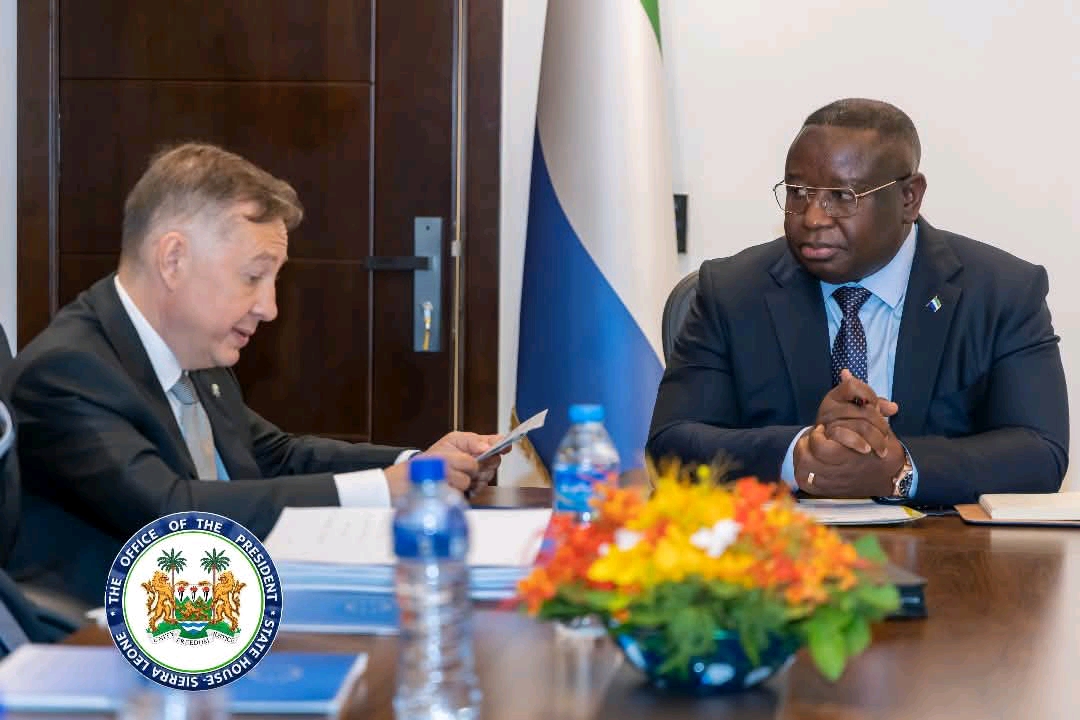
President Bio welcomed EU Ambassador Jacek Jankowski and other energy partners to State House on Thursday, where they updated him on the project’s progress. Also present was Dr. Kandeh Yumkella, who has played a key role in making the project a reality. The visitors shared updates on the technical, legal, and financial planning already in place.
During the meeting, President Bio thanked the EU and partners for standing by Sierra Leone at a time when global funding is becoming harder to secure. He said bringing electricity to more people is a top goal for his government and promised that the laws needed to support this project will be passed in Parliament.
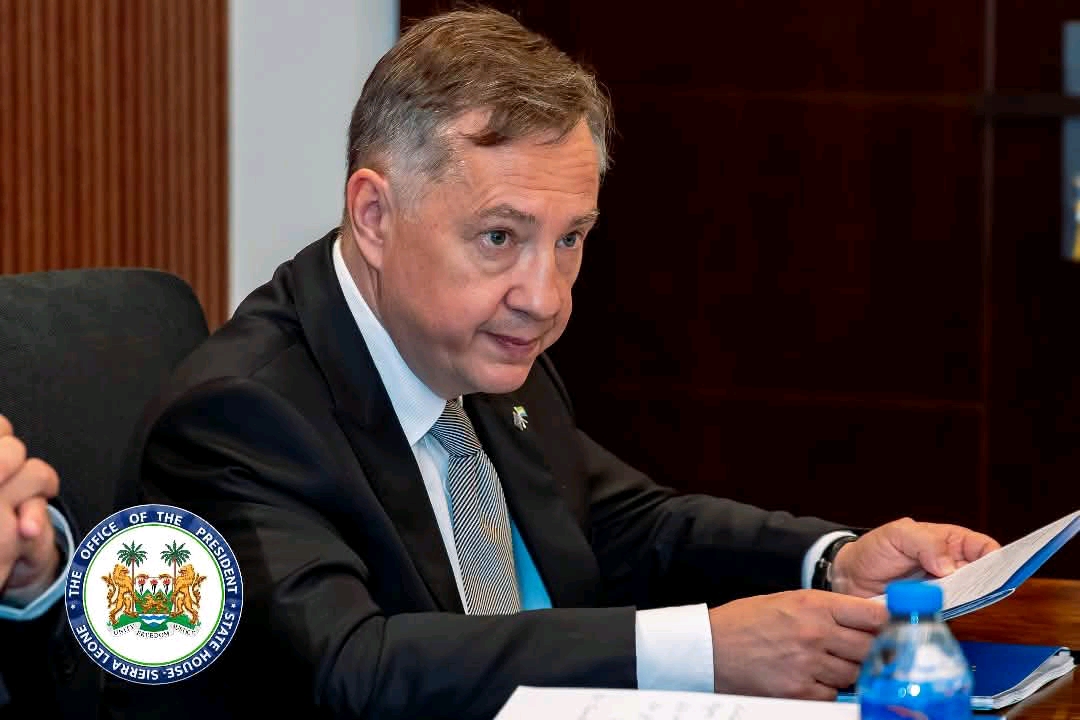
Dr. Yumkella explained that the groundwork for this project started two years ago. New rules have been added to help the Electricity and Water Regulatory Commission (SLEWRC) support private companies who want to help build and run the minigrids.
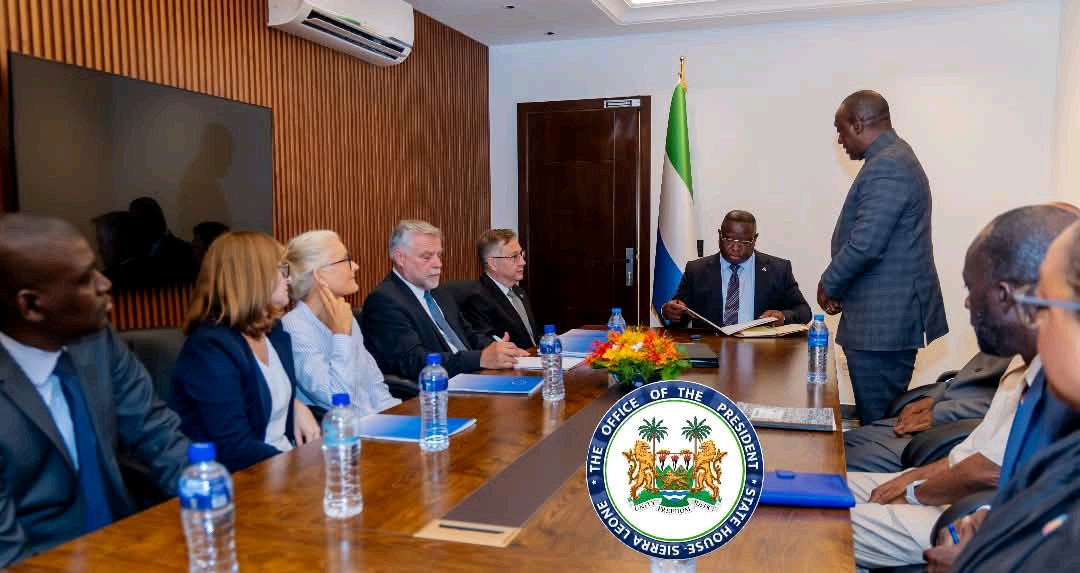
Ambassador Jankowski said the EU is investing €34 million in total, with €22 million going directly into the project and technical support. The Government of Sierra Leone is adding 50 million New Leones. He said the idea is to allow private businesses to develop and manage the solar grids, with support and guidance from government offices like the PPP Unit and SLEWRC.
UNOPS helped design the investment plan, which includes ways to make electricity affordable for rural families while also encouraging more companies to take part. The plan offers payment support and other tools to close the gap between what people can afford and the cost of the service.
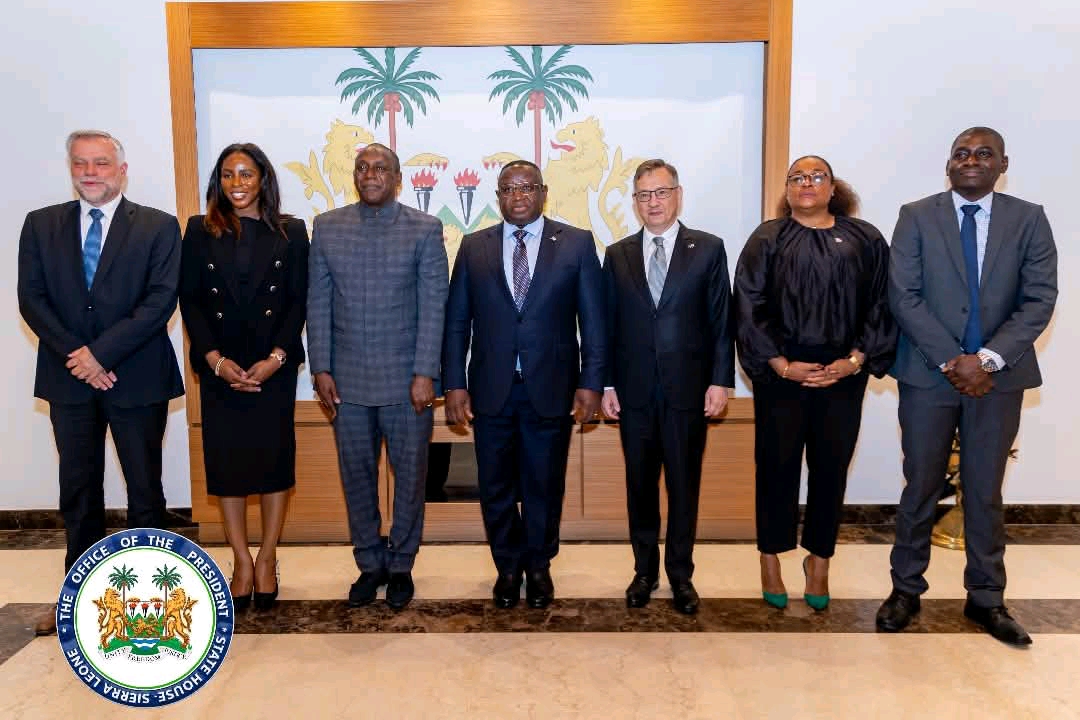
Beyond bringing electricity, the solar project is expected to create jobs and boost local businesses, especially for women and young people in areas that don’t have power. It also fits into President Bio’s “Big Five Game Changers” plan, especially the focus on innovation and technology.
With this project, Sierra Leone is making a big move toward clean energy and better lives for people in remote areas. The official launch by President Bio will mark a major step toward the country’s energy goals.


